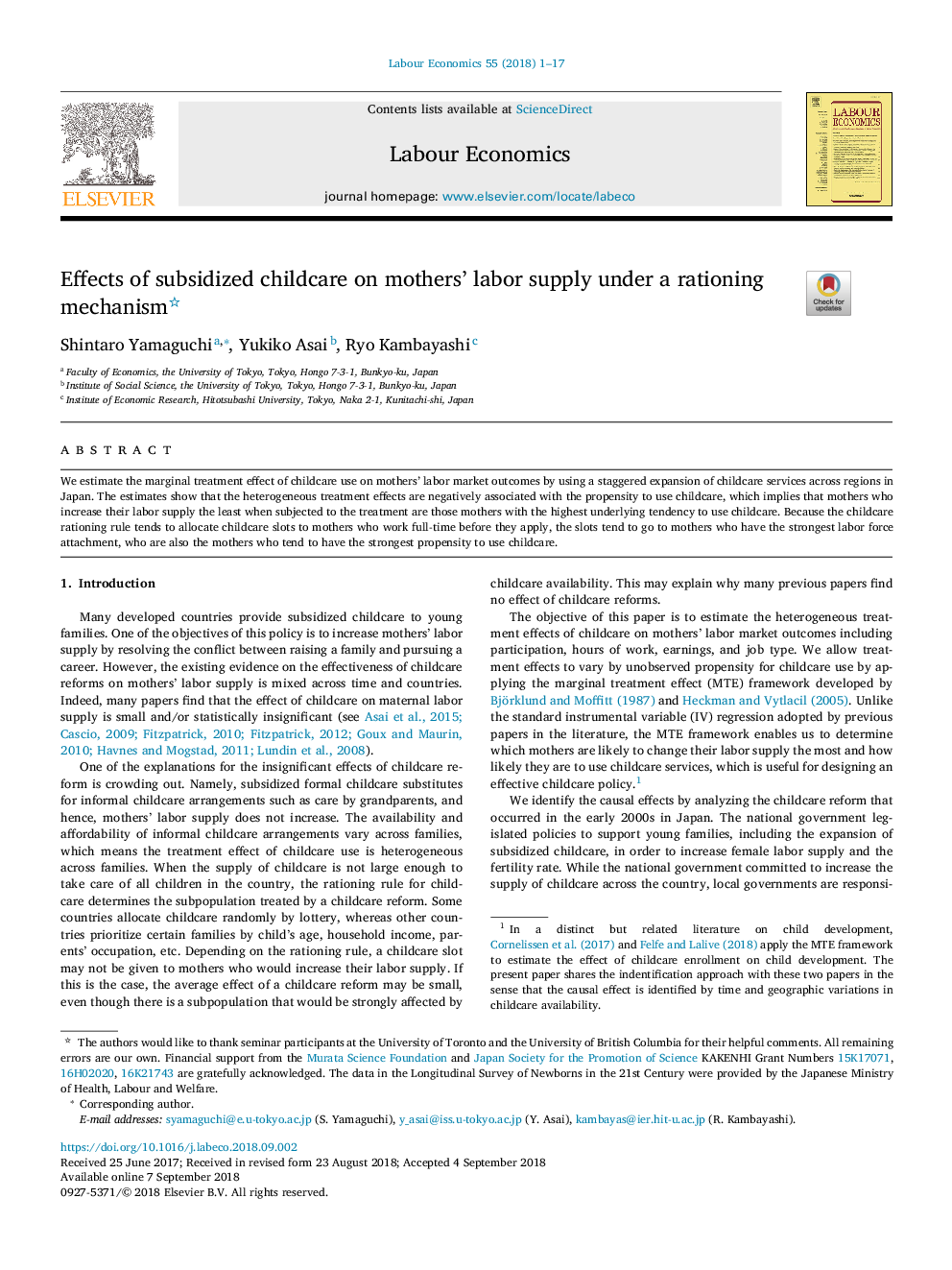| Article ID | Journal | Published Year | Pages | File Type |
|---|---|---|---|---|
| 10153747 | Labour Economics | 2018 | 17 Pages |
Abstract
We estimate the marginal treatment effect of childcare use on mothers' labor market outcomes by using a staggered expansion of childcare services across regions in Japan. The estimates show that the heterogeneous treatment effects are negatively associated with the propensity to use childcare, which implies that mothers who increase their labor supply the least when subjected to the treatment are those mothers with the highest underlying tendency to use childcare. Because the childcare rationing rule tends to allocate childcare slots to mothers who work full-time before they apply, the slots tend to go to mothers who have the strongest labor force attachment, who are also the mothers who tend to have the strongest propensity to use childcare.
Related Topics
Social Sciences and Humanities
Economics, Econometrics and Finance
Economics and Econometrics
Authors
Shintaro Yamaguchi, Yukiko Asai, Ryo Kambayashi,
